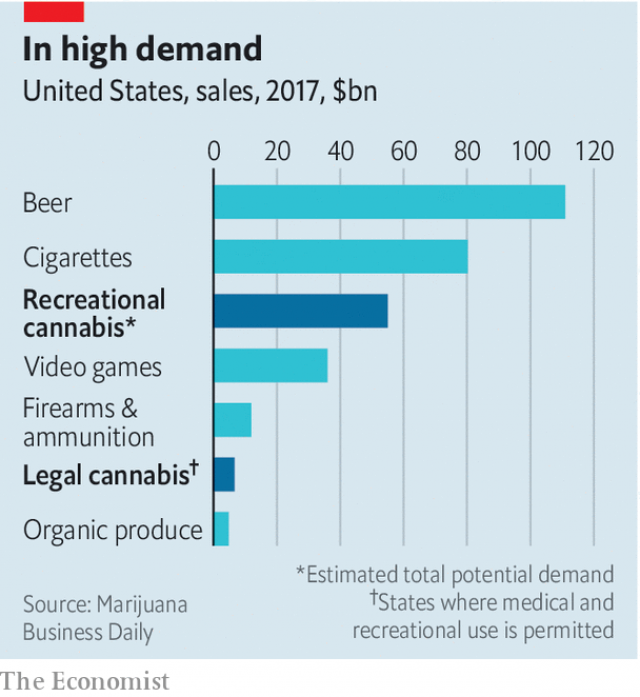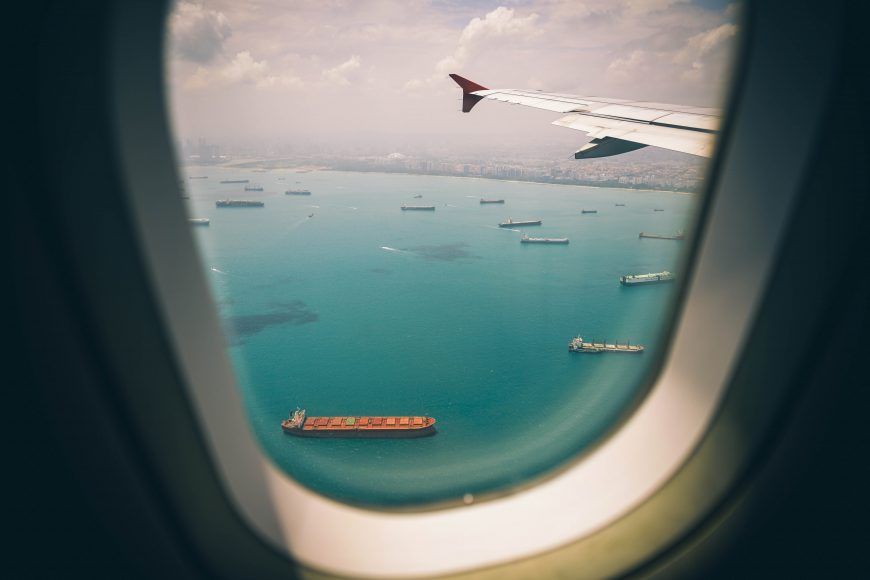Will the rising tide of legalization swamp international conventions?
The transport and sale of cannabis across national lines has virtually always existed in some form or another, most predominantly in a "black market" context. From soldiers fighting in foreign lands bringing back local goodies, to cartel-built submarines carving underwater routes, to ordering online via the "Silk Road", cannabis has most definitely traveled the globe many times over. Darkness, legitimate danger, and severe legal repercussions have always made the black market international cannabis trade risky, yet lucrative. It would seem that we, as a global population, may finally be on the other side of that darkness, or at least seeing the light.
The Canadian market is projected to be worth more than $4.9bn by the year 2020.
Shifting Attitudes
The current international climate surrounding the cannabis trade has shifted quite dramatically from times past. While nobody is exactly free and clear to purchase or distribute cannabis wantonly around the globe, legitimate, legal trade routes have already been operational for some years now. Twenty or thirty years ago, you'd have found it impossible to convince anyone that they would see, within their lifetime, such a thing as legal, global, commercial cannabis sales... but here we are. Many nations have enacted varying degrees of cannabis use legislation, with Canada most recently (at the time of writing) allowing for recreational adult use and home cultivation (up to 4 plants) nationwide. It's a good thing, too, because the Canadian market is projected to be worth more than $4.9bn by the year 2020.
In other parts of the world, we're beginning to see positive traction towards global relaxation with regards to cannabis, especially for medicinal purposes. More than 30 countries have enacted some form of legalization / decriminalization legislation within the last few years, which is impressive to say the least (there's a pretty thorough map over at 420 Beginner). The global legal spectrum ranges broadly in terms of what's allowed and where, with only Canada and Uruguay currently offering recreational adult use; a hotly-debated issue all its own. Many argue that recreational legalization undermines the efforts to reduce negative stigma and promote the medicinal and therapeutic benefits of the plant (among other arguments we'll discuss shortly).
Global Response to Change
In the U.S., more than 60% of states possess medicinal cannabis legislation, 9 of which allow for recreational use. That's a strange fact to consider, when cannabis seems to be viewed through a negative prism by the bulk of the nation's leaders, despite how thoroughly cannabis culture and commercial cultivation have taken root in the States. It's jarring to discover that a Canadian citizen who has ever consumed legally-produced cannabis may find themselves barred from entering the U.S. Controversially, the President of the Philippines has even argued it's a civic duty to murder your neighbourhood pot dealer. Though it seems as if the bulk of the industrialized world has begun to legalize in some fashion or another (countries like Switzerland, Romania, Mexico, and others have strict limits on THC content, the most extreme being ≤0.1% THC), not every locale has built the legal infrastructure to begin mass-scale cultivation. To satisfy the need of the rapidly-expanding legal consumer base, many countries have begun importing or exporting cannabis in massive quantities. Germany, for example, gained more than three-quarters of a million registered medicinal cannabis patients since enacting their legislation last year, yet they likely won't begin producing any of their own crop until sometime in 2019.
Market Potential
In the meantime, the demand for legal cannabis in these countries is vast and growing. In the first half of 2018, Germany imported over 1.62 metric tons of flower, with about 60% of their product coming from Canadian LPs, and the rest coming from the Netherlands. Granted, it's no easy task to set this sort of import / export in motion, given the nature of the goods. Suffice it to say that there's plenty of red tape to clear. While nations might make agreements between one another, and all appropriate paperwork may be filed on behalf of both the importer and exporter, that doesn't necessarily mean that it's entirely "okay", at least as far as the United Nations is concerned.

The United Nations
Beginning in 1961 (and amended in the 1970s and 1980s), the U.N. adopted a severe stance towards illicit drugs, arguably exaggerating the harmfulness of cannabis and ignoring its benefits. While many have argued for the last several years that U.N. policies regarding drugs in general, but most specifically cannabis, need amending to reflect modern attitudes, national legalization for recreational adult use puts Canada in direct violation of the Single Convention treaty of 1961. Any country legalizing recreational use of legally-produced commercial cannabis is essentially ignoring the treaty to which they are a signatory. Further, any nation engaging in trade with a member that's legalized recreational use in contravention of the treaty, runs the risk of being perceived as also being in violation. This could lead to a significant negative impact on other international trade agreements and protections.
Much of the verbiage and scientific understanding contained in the Single Convention is in desperate need of an update to reflect what we now know of the benefits of cannabis and other substances. At the same time, signatories to globally significant treaties should certainly honour their commitments. It wouldn't do the global populace much good if U.N. member states began disregarding treaties regarding emissions and nuclear weapons. Thankfully, even the current U.N. Secretary General, António Guterres, agrees that it's time for a serious review of international drug policies, particularly as they relate to cannabis and its medicinal and therapeutic use.
"Not as Secretary-General of the United Nations, as former Prime Minister of Portugal, I'm particularly proud of what we did [decriminalization in Portugal]. It was not easy. It was not a consensus measure. I think it worked." António Guterres, Secretary-General, United Nations
As the future of the legal international cannabis trade continues to get brighter day by day (unless you're in the U.S.), GrowerIQ is here to help bolster that growth. Whether it's a matter of determining the best conditions for cultivation in Munich or monitoring humidity at your site in Argentina, GrowerIQ has you covered for just about everything but your export permits!
About GrowerIQ
GrowerIQ is changing the way producers use software - transforming a regulatory requirement into a robust platform to learn, analyze, and improve performance.
To find out more about GrowerIQ and how we can help, fill out the form to the right, start a chat, or contact us.

